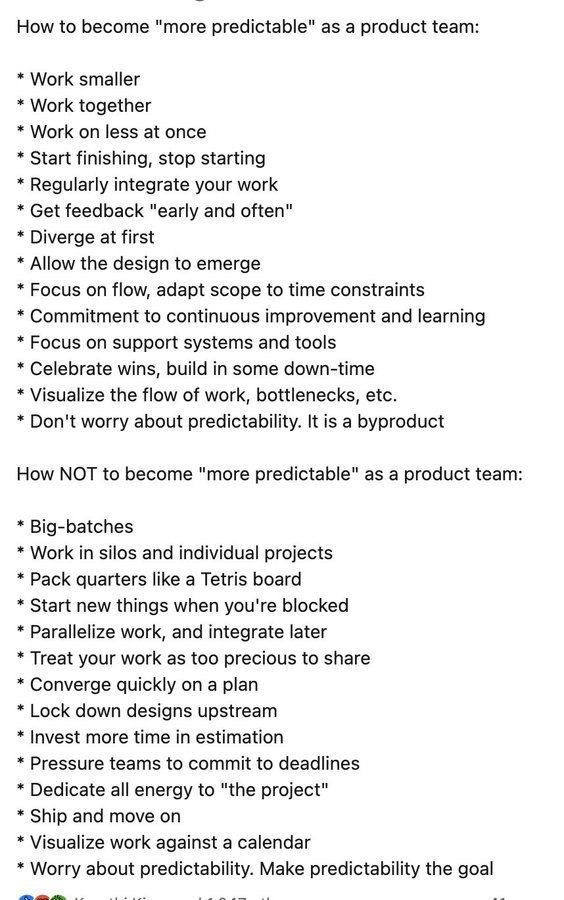How to become more predictable
product
Source: https://twitter.com/johncutlefish/status/1620471389856862208
Frameworks are teaching frameworks
product learningThe danger comes when companies lose sight of the fact that many frameworks are teaching frameworks. They emerged when someone said, "ok, this is what we arrived at organically; how would I explain to someone else what we do?" Or "how would I teach someone what we do?" Companies pay millions of dollars to "implement" frameworks that were never meant to be implemented—the framework was meant as a starting point.
My comment:
I liked this framing. A lot of times, when you are looking for a solution, you tend to treat everything as a cooking recipe: follow these steps and you will succeed. It never happens like that. It is there to make you think and take it as a guide, not as a recipe.
Source: from https://cutlefish.substack.com/p/tbm-5452-that-framework-is-just-common
Don't borrow trouble
product self_improvementIn the absence of real-world experience, action, and feedback, your idle mind is inclined to manufacture fantasy. And, if you're anxious, your fantasies will be anxiety-inducing: you'll conjure up problems that don't exist.
Your imagination will cast itself far into the future, build up a complete fantasy world, invent problems in that fantasy world, then ricochet back to the present… and freak you into inaction.
Source: https://shorts.stackingthebricks.com/dont-borrow-trouble/
Closing loops
productThere’s a deceptively simple idea called the PDSA loop (‘Plan-Do-Study-Act’). I currently think that the loop captures the heart of good business execution, but that for some reason we find it terribly difficult to do.
The basic idea in PDSA is that you:
- Make a plan
- Do the plan
- Study the results of the plan
- Act on what you’ve learnt and integrate your new hypotheses into the next iteration of the loop.
It is easy to come up with plans and then start executing on them. The problem is that:
- Either you get distracted, mid-execution, by something else that’s shinier. Or you get distracted mid-execution by something that blows up (and in business there’s always something that’s blowing up).
- Or you get distracted by something else that pops up at the end of the current execution loop,
- Or you forget to do the ‘study’ bit at the end of a loop, which informs your next cycle.